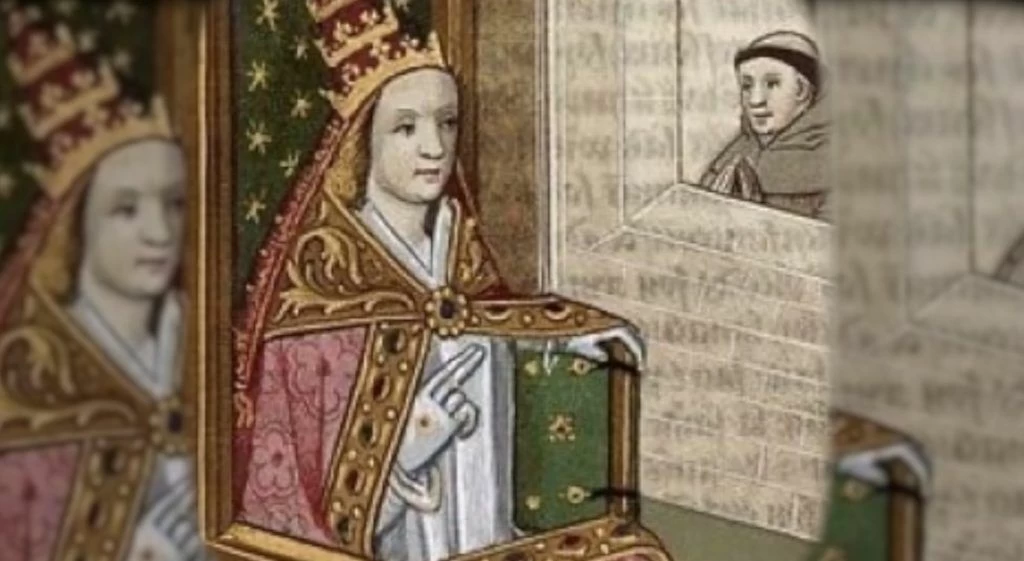Pope John VIII may not have been a pontiff that many people would recall were it not for a certain cleric of medieval chroniclers who insisted that Pope John VIII could have very well been the most unique Pope of all time. Can it really be possible that a woman rose through the Roman Catholic ranks and was eventually elected Pope?

One of the earliest accounts of a possible female Pope was made in the pages of De Septem donis Spiritu Sancti (translated as The Seven Gifts of the Holy Spirit) during the 13th Century by a French Dominican known as Stephen of Bourbon. According to this account, the Papacy took place in the 1100s and the reign itself ended when the pontiff went into labor during a procession. A cynical mob regarded this as blasphemous heresy and promptly dragged their ‘Pope’ out of Rome and executed her with a stoning.
You May Also Like: Death of Pope John Paul I
Legend has it that no further Papal processions use this street and any elected Pope has to undergo a particular examination while seated on a specially constructed chair with a hole in the middle of the seat. Reports often differ surrounding this test. Some state it is done visually, while others claim it is performed by touch alone. When satisfied that everything is in order, the tester proclaims loudly, “Duos habet et bene pendentes” (“He has two, and they dangle nicely”)
![Pope Joan giving birth. Woodcut from a German translation by Heinrich Steinhöwel of Giovanni Boccaccio's De mulieribus claris, printed by Johannes Zainer at Ulm ca. 1474. Image: kladcat [CC BY 2.0]](https://www.historicmysteries.com/wp-content/uploads/2015/04/Woodcut_illustration_of_Pope_Joan_-_Penn_Provenance_Project.jpg)
Additional versions of the same chronicle have been edited from this original. Some say that the unnamed woman died in labor and was buried in the exact spot she passed. Others contend that the papal reign took place as early as 855 and lasted anything from a few days to several years.
One even went as far as to give her a name and an entire profile: Johannes Angelicus, an English woman who was born in the German town of Mainz. After falling in love with a Benedictine monk, she disguised herself as a man and accompanied him to Athens. There she learned Latin and Greek. Assuming the identity of a monk, she gave herself the name of John Anglicus and moved onto Rome. Angelicus proved to be a scribe of some talent and was tasked to be a papal notary. Before too long, he (or she) became a Cardinal.
Angelicus was believed to have had a very keen mind that gained fountains of knowledge and the ability to pass on acquired skills and abilities through insightful instruction. Such a dedicated, knowledgeable, and respected monk would have proven an ideal candidate to become Pope.
Angelicus’s fate may not have been such a brutal one, however. Some chronicles reckon that Pope Joan was not promptly executed for heresy, but imprisoned for a number of years and forced to undergo penance for what she was said to have done. Her baby, a boy, grew up to become the Bishop of Ostia and had his mother entombed in his cathedral upon her passing.
The Roman Catholic Church has always denounced these reports and maintains that such an event never took place.